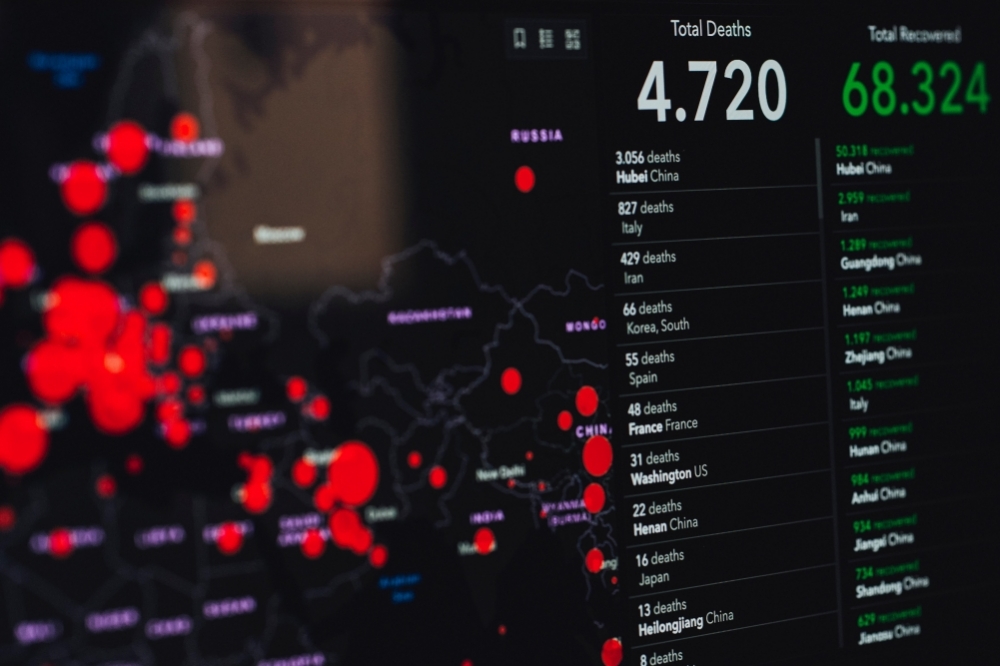

The school will provide a set of mini-courses delivered by renowned scientists and aimed at early-career researchers working with fields ranging from epidemiology to applied mathematics to political and social sciences. Registrations are due on February 28, 2023 (image: Markus Spiske/Unsplash)
The school will provide a set of mini-courses delivered by renowned scientists and aimed at early-career researchers working with fields ranging from epidemiology to applied mathematics to political and social sciences. Registrations are due on February 28, 2023.
The school will provide a set of mini-courses delivered by renowned scientists and aimed at early-career researchers working with fields ranging from epidemiology to applied mathematics to political and social sciences. Registrations are due on February 28, 2023.

The school will provide a set of mini-courses delivered by renowned scientists and aimed at early-career researchers working with fields ranging from epidemiology to applied mathematics to political and social sciences. Registrations are due on February 28, 2023 (image: Markus Spiske/Unsplash)
Agência FAPESP – The São Paulo School of Advanced Science on Epidemic Preparedness will be held on July 10-22, 2023, at the School of Public Health and Medical School of the University of São Paulo (USP) in Brazil.
The school aims to foster interdisciplinary dialogues for research and action by focusing on core tracks: mathematical and statistical modeling, genomics, epidemiological surveillance, public health policies, immunology, and dialogue with society. Outstanding researchers will offer mini-courses focusing on how these areas contribute to effectively responding to epidemiological emergencies
The School will bring together a roster of highly regarded researchers in all these areas to participate as speakers – the up-to-date list of confirmed speakers includes Arthur Reingold, from the University of California, Berkeley; Neil Ferguson from Imperial College; Ester Sabino from University of São Paulo’s Institute of Tropical Medicine (IMT-USP) and Nuno R. Faria from Imperial College London, both of which are leaders of the Brazil-UK CADDE Centre (Centre for Arbovirus Discovery, Diagnostics, Genomics, and Epidemiology); Julia Raifman, assistant professor at Boston University and leader of the COVID-19 U.S. State Policy Database (CUSP); Marcia Castro, chair of the Department of Global Health and Population at the Harvard TH Chan School of Public Health; Pedro Arcos Gonzáles, associate professor at the University of Oviedo and a founding member of Médecins Sans Frontieres; Leo S. Bastos, Fiocruz and others including several leading faculty at USP, São Paulo State University (UNESP) and State University of Campinas (UNICAMP).
Participants will work in multidisciplinary groups in simulated situation rooms and collect hands-on experience in site visits. Most afternoons will be dedicated to these practical activities led by instructors and teaching assistants.
The event is supported by FAPESP through its São Paulo School of Advanced Science Program (SPSAS). Students and young doctors from a variety of fields are invited to apply: epidemiology, applied mathematics, physics and statistics, genomics, political and social sciences, immunology, collective health, ecology. Students from other areas who focus on tackling epidemics are also welcome.
Applications must be received by February 28, 2023. There is no registration fee and those accepted will have coverage of accommodation, food and transportation expenses. The number of vacancies is 100 (50 grantees from all states of Brazil and 50 international grantees).
More information: sites.usp.br/epischool/en/.
Republish
The Agency FAPESP licenses news via Creative Commons (CC-BY-NC-ND) so that they can be republished free of charge and in a simple way by other digital or printed vehicles. Agência FAPESP must be credited as the source of the content being republished and the name of the reporter (if any) must be attributed. Using the HMTL button below allows compliance with these rules, detailed in Digital Republishing Policy FAPESP.





